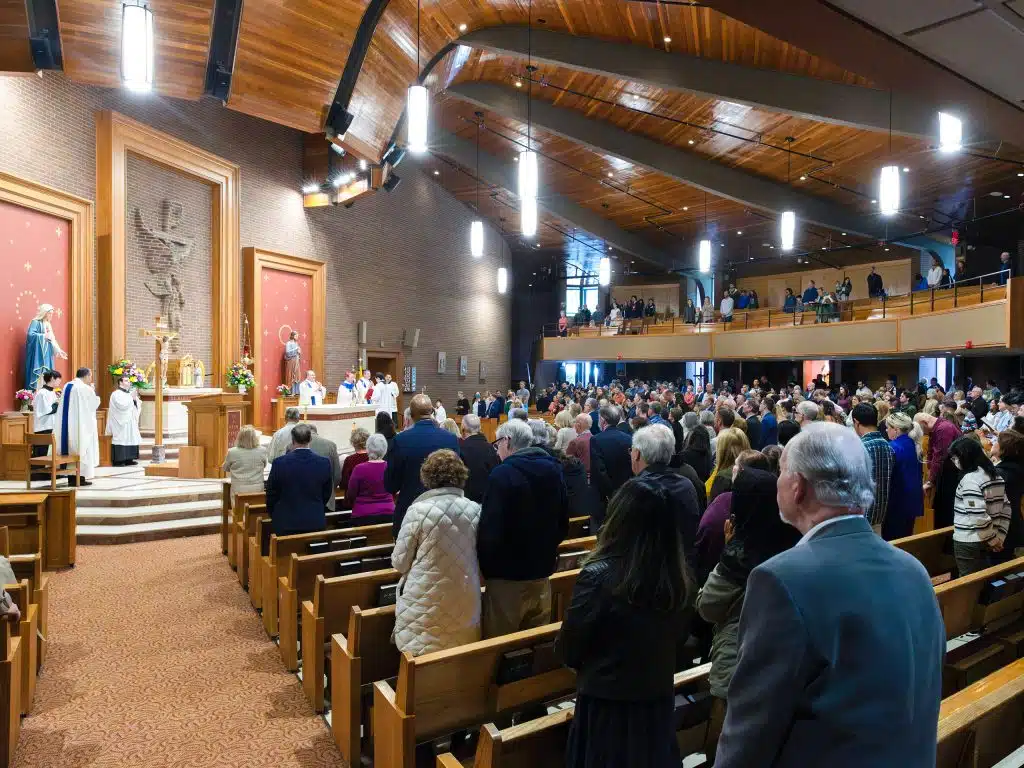When considering the meaning of Advent, we are struck once again at the church’s extraordinary wisdom. The faithful are granted several weeks to make ready for the solemnity of the Birth of Christ. Such a period of prayerful preparation, if sincerely “entered into,” ensures that Dec. 25 will not be just another day but rather a joyful commemoration of the first coming of Jesus more than 2,000 years ago.
Mothers tell us much about preparation. They are well aware of how to make ready for the birth of a child. The period of pregnancy helps mothers, fathers, siblings, relatives and friends adjust for the arrival of the newborn.
The Blessed Virgin Mary experienced the first Advent. Thanks to the Archangel Gabriel, she knew that the holy Child within her was “the Son of the Most High” (Lk 1:35). She intensely waited the appearance to the world of the one nestled in her chaste womb.
The long anticipation of the people of Israel rested with Mary. The chosen people had spent centuries preparing their hearts for the Messiah. Mary, during her Advent of nine months, shouldered the hopes of Zion.
The season of Advent is crucial for us.
Our Lady’s pining for the birth of the Savior is the pattern for us. We desperately need Jesus. He wants to be with us in our joys and sorrows. Therefore, to benefit from the annual celebration of Christmas, we commit ourselves to an Advent, in the spirit of Mary, filled with prayer, self-denial and service.
Here are some tried and true Advent “exercises” to help us to prepare for Christmas.
Prayer. Communication with God is necessary during any liturgical season. Advent calls forth our prayer by reminding us that Jesus, who came to redeem us from Original Sin, desires that we pray because he knows how our relationship with him, his Father and their Holy Spirit needs to be nourished. Prayer is required if we are to remain faithful to Christ and his life-giving commands.
Spend extra time in personal prayer; read Chapters 1 and 2 from the holy Gospels according to Sts. Matthew and Luke; pray Our Lady’s holy rosary; go to confession; receive the Eucharist often.
Self-denial. Any solid mortification that we practice is valuable to our souls. We are to be fortified in order to welcome Jesus again at Christmas. How pleased he will be if we show him that we have cooperated with the Holy Spirit. Self-denial effects our detachment from the things of the world.
Deny yourself some legitimate pleasure; mortify your anger; stem your curiosity.
Service. The birth of Jesus was about obeying his Father and serving us. Christ undertook his mission as the Suffering Servant who selflessly laid down his life in adoration of his Father and in service of his brothers and sisters.
Visit an elderly person in a retirement home; extend kindness to a pregnant woman; offer some alms to a soup kitchen.
Mary did not merely wait for her son’s birth. Instead, she actively prepared for his coming. The spiritual fruits that we enjoy this Christmas will be in direct proportion to how we, endowed with divine grace, prepared this Advent to greet Jesus.
Each Christmas is a privileged opportunity to welcome Jesus into our hungry hearts. No matter how we behaved during the last year, we may benefit spiritually from this festive time if only we turn to him, accept his abundant grace and be reconciled to him.
With Mary near St. Joseph, may we welcome Jesus with joy and share him with others. Emmanuel — “God-with-us” — is coming.
Msgr. Mangan teaches at Mount St. Mary’s Seminary in Emmitsburg, Md.



